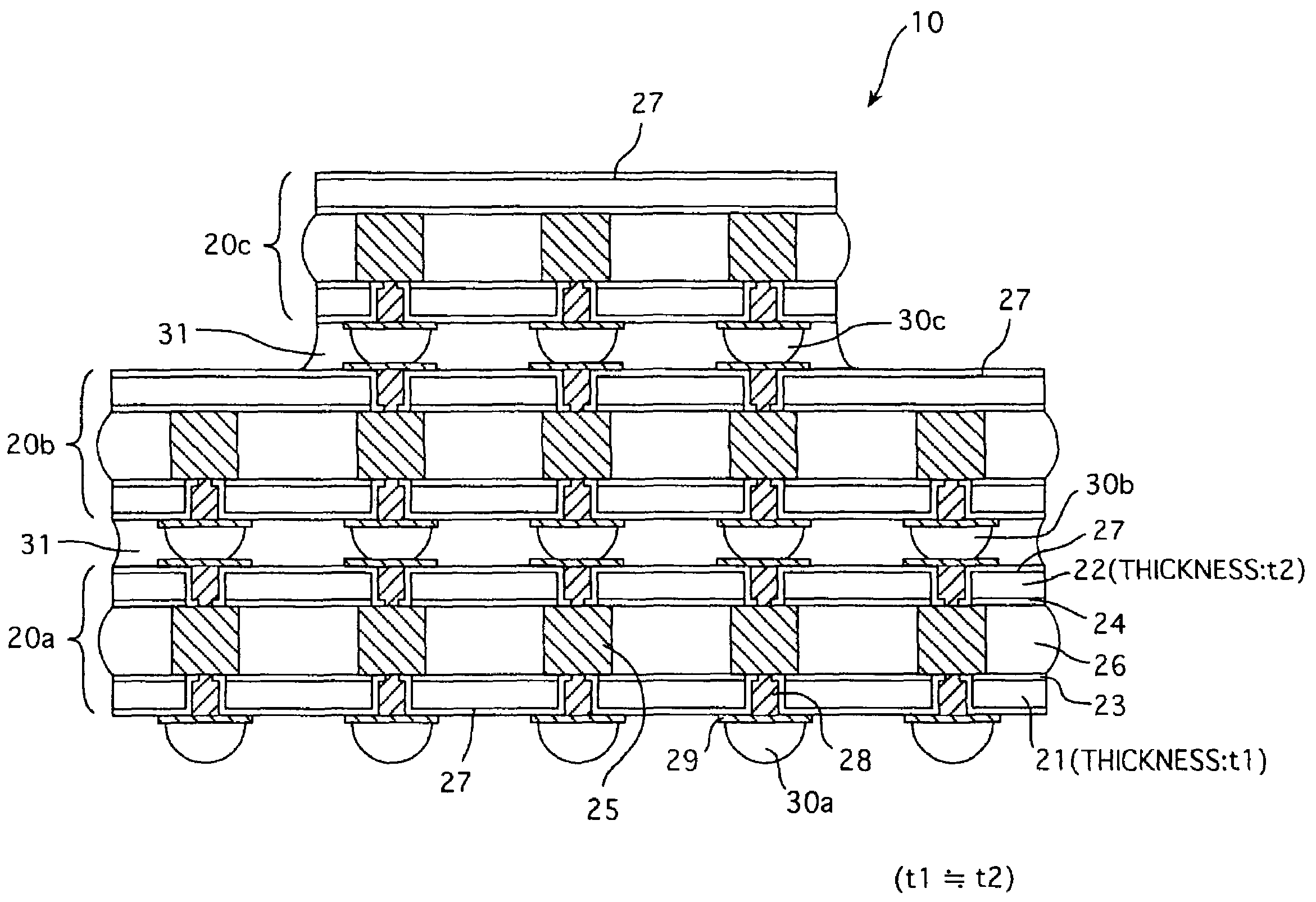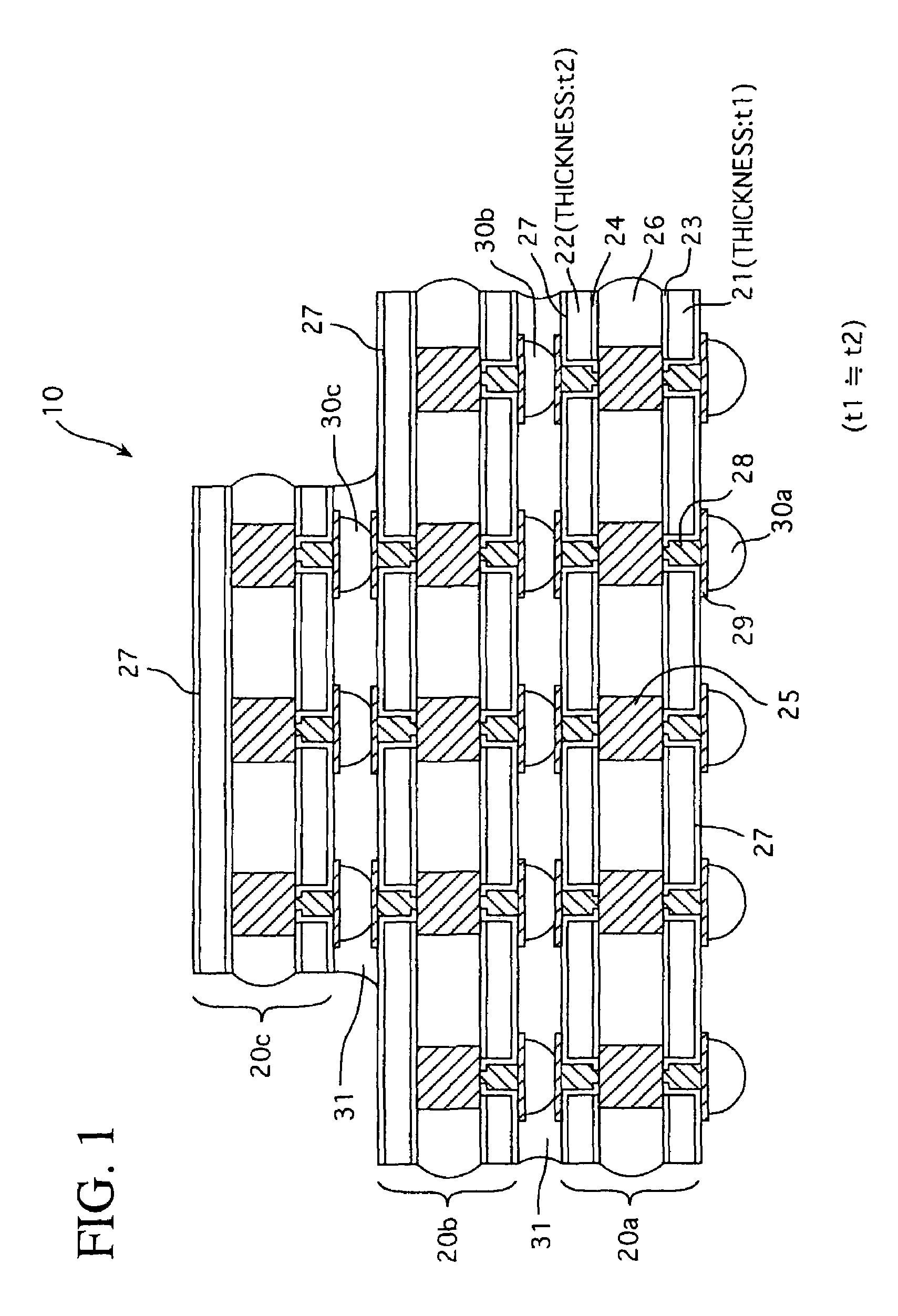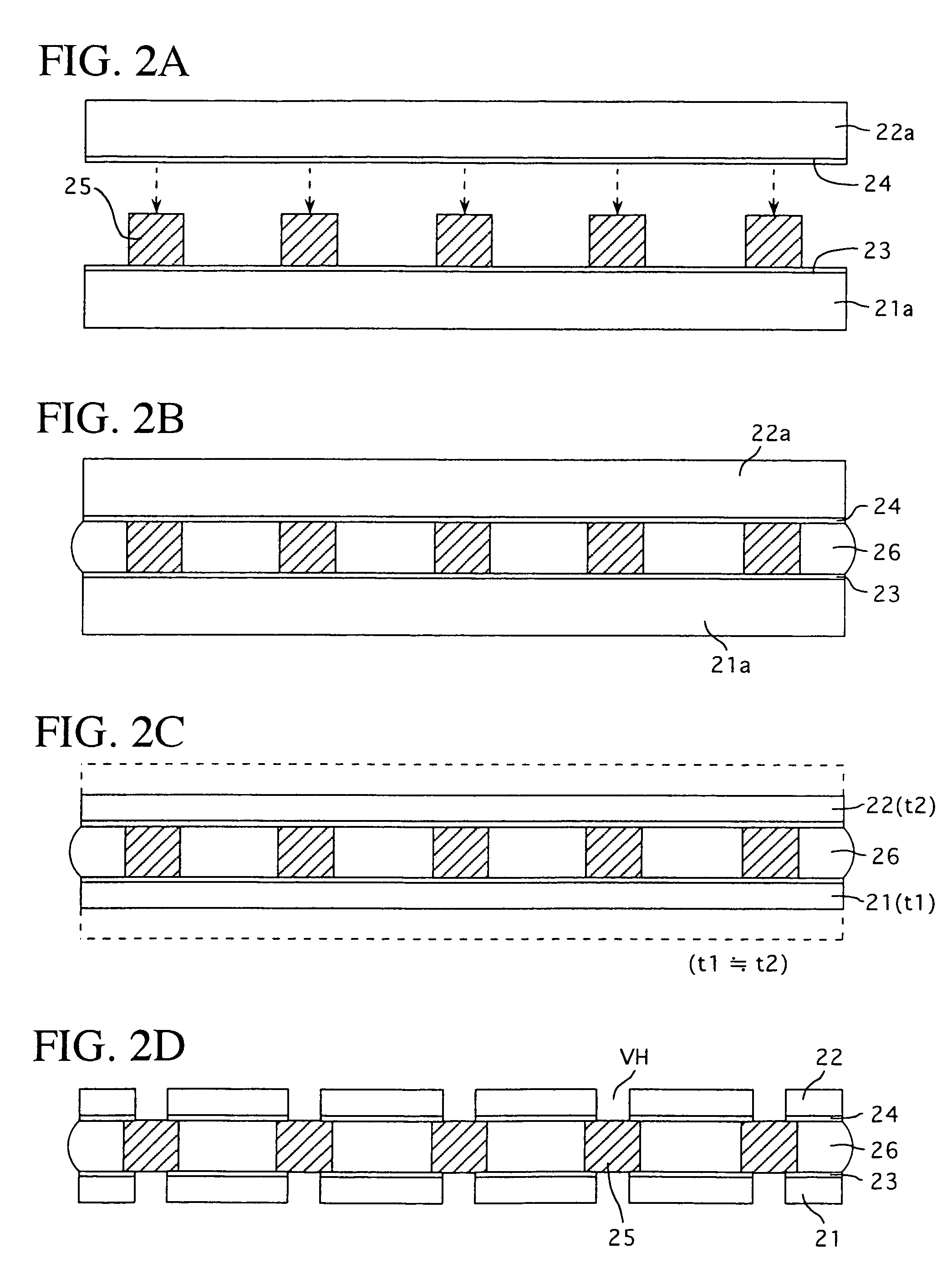Semiconductor device and method of manufacturing the same
a semiconductor and semiconductor technology, applied in semiconductor devices, solid-state devices, basic electric elements, etc., can solve the problems of limiting the thickness of the silicon substrate to be thinned, the method has a drawback in terms of thinning design in the same manner, and cannot meet the recent requirement for thinning design. , to achieve the effect of reducing drawbacks and high density
- Summary
- Abstract
- Description
- Claims
- Application Information
AI Technical Summary
Benefits of technology
Problems solved by technology
Method used
Image
Examples
Embodiment Construction
[0026]FIG. 1 schematically shows the sectional structure of a semiconductor device according to an embodiment of the present invention.
[0027]The semiconductor device 10 according to this embodiment has a three-dimensionally mounted configuration formed by stacking structures 20a, 20b, 20c in three stages, as shown in the figure. In each of the structures 20a, 20b, 20c, numerals 21 and 22 denote a silicon substrate thinned to a prescribed thickness, respectively; numerals 23 and 24 denote a conductor layer which is formed on one surface of the corresponding silicon substrate 21, 22, respectively, and which involves device patterns including required circuit patterns, wiring patterns, or the like; the numeral 25 denotes a metal bump which bonds the two silicon substrates 21, 22 through each of the conductor layers 23, 24 as will be described later; and numeral 26 denotes an insulative resin layer formed by being filled into a gap between the conductor layers 23, 24 bonded together by ...
PUM
 Login to View More
Login to View More Abstract
Description
Claims
Application Information
 Login to View More
Login to View More - R&D
- Intellectual Property
- Life Sciences
- Materials
- Tech Scout
- Unparalleled Data Quality
- Higher Quality Content
- 60% Fewer Hallucinations
Browse by: Latest US Patents, China's latest patents, Technical Efficacy Thesaurus, Application Domain, Technology Topic, Popular Technical Reports.
© 2025 PatSnap. All rights reserved.Legal|Privacy policy|Modern Slavery Act Transparency Statement|Sitemap|About US| Contact US: help@patsnap.com



